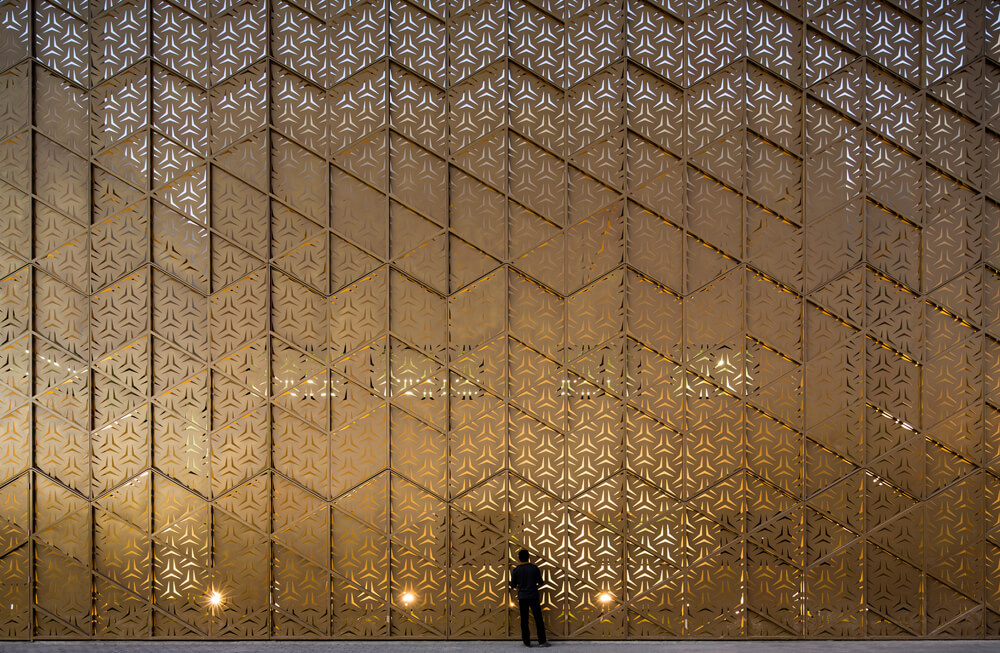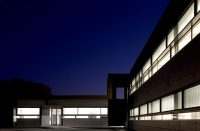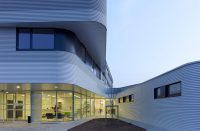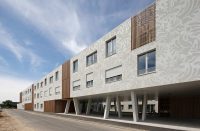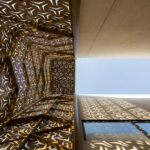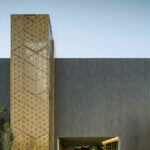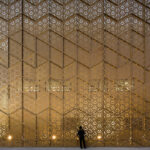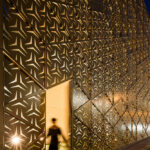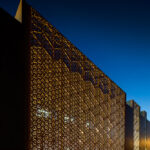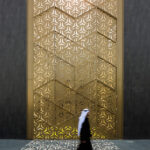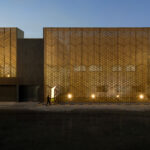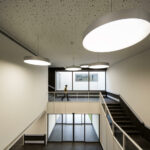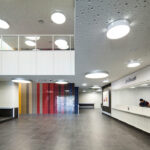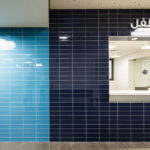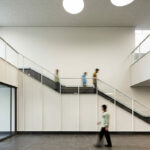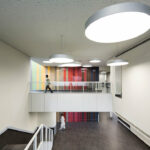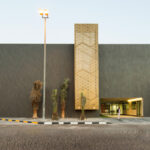Architect(s): AGi Architects
Address: مركز الصحة الوقائية، 120 St, Sulaibikhat, KUWAIT CITY, Kuwait
Latitude/Longitude: 29.316120,47.846493
Photographs: Nelson Garrido
Ali Mohammed T. Al-Ghanim Clinic building by AGi architects stands as a pioneer in the healthcare sector, where challenging issues such as privacy and security are addressed using a new model, where courtyards attached to the façade are the driving element behind this unique typology.
The program occupies the entirety of the site, and from afar the building is viewed as a monolithic element solidifying its ground and creating a high walled fortress protecting from vandalism and maximizing privacy. The courtyards are carved into the building, allowing for natural light into all the clinics. The concept of the façade generating light, views and ventilation is reversed; and the courtyards are brought inwards from the perimeter creating further privacy. Examination rooms have been located towards the closed outer façade and opened to the interior courtyards in which common space flows.
Working directly with manufacturers and parametric processes that generate maximum areas based on minimum thicknesses, and adaptable geometries to incorporate efficient substructures have allowed creating a contemporary mesh that connects to the cultural identity of end users. An anodized and perforated metal sheet allows sufficient light to enter, constructing a veiled threshold in between exterior and internal courtyards.
Upon entering the clinic, a colorful ceramic mosaic welcomes patients. This range of colors will go with visitors during their stay at the clinic, identifying counters of each medical specialty with different colors included in the mosaic. This common practice in the hospital use is especially useful when building users belong to very different cultures, users who not only do not know the language but use different alphabets – Devanagari, Arabic or Roman.
Due to the density and variety of the program presented in this clinic, the spaces are sectioned off into multiple self-sufficient departments, which can operate independently from one another. Internal circulation is organized in a fluid way, conceiving space as a succession of linked rooms and public areas, avoiding as much as possible the typical corridor scheme of hospital typology.
The Ali Mohammed T. Al-Ghanim Clinic is viewed as an iconic progressive building, in which this vision could not have been apprehended without the generous donation of Mr. Ali Mohammad Thuniyan Al -Ghanim.
Text description provided by the architects.
Design team: Nasser B. Abulhasan, Joaquin Pérez-Goicoechea
Architectural team: Salvador Cejudo, Stefania Rendinelli, Hanan Alkouh, Gwenola Kergall, Bruno Gomes, Ana López Cerrato
Contributed by AGi Architects

